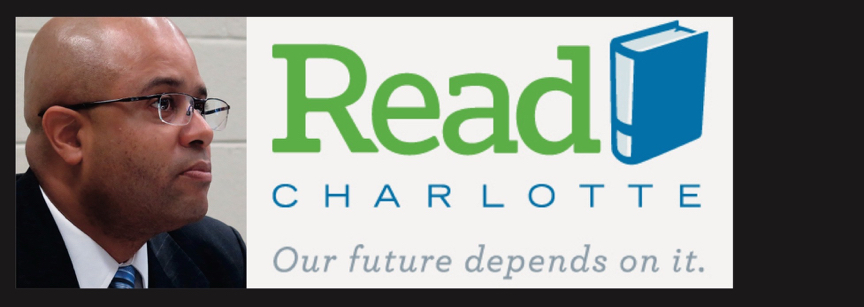
July 7, 2015
In his first 10 weeks in Charlotte, Dr. Munro Richardson has been mostly listening. He’s heard enough to believe that everyone has an opinion on why more children are not reading well. What he said he hasn’t heard, he says, is very many people asking teachers, reading buddies and students why there is a reading problem, or what they would do to fix the problem.
Richardson appears focused on fixing the problem, but doing it in a way that the community considers itself part of the solution, not the patient on the operating table hovered over by all-knowing experts.
Richardson is the newly hired executive director of Read Charlotte, a tiny nuleus attempting to use suasion and a few million in seed money to push 40% reading proficiency scores up to 80% within 10 years. The goal was set by a small group of community leaders with financial backing from community foundations. It could, of course, be hard for Dr. Richardson to overcome the legacy of his mission having been defined by a small group hovering over the “patient.”
Observer reporter Andrew Dunn’s take on Dr. Richardson’s presentation is here. Below are videos from Dr. Richardson’s presentation and the Q&A that followed.
Presentation, part 1
Presentation, part 2
Q&A:
Q: I’d say half the responsibility for reading lies with parents. What are you doing to engage parents?
Q: What about a focus on cultural relevance of what children are reading?
Q: Tell me about one radical notion you’ve seen elsewhere that you’d like us to consider.
Q: Westside families keep saying, ‘Don’t do something to me.’ Are your focus groups still running, where you can hear from them?
Q: Is there a problem at day cares, where children aren’t getting the background they need for kindergarten?
Q: Is there a problem at all day cares, or mostly at the unrated, small home day cares?
Q: What I hear you saying is, get the children who arrive at school unprepared to read, get them to the right teacher.
Q: What is Read Charlotte thinking about how to coordinate all the reading initiatives already underway?
Q: Will you be funding independent evaluations so we can learn what works?
Q: We believe that staff development is critical to raise the skills of those in the classroom. Will you support that?
Q: What do we need to do to address the social and emotional development needs of our children?
Q: Will you be filling gaps you identify, or just identifying best current practices and supporting those?
Q: Project LIFT is to last 5 years. How long will Read Charlotte be in Charlotte?
Q: What portion of its money should the county be devoting to preschool education?
Q: Are you spending a whole year gathering data and listening to people?